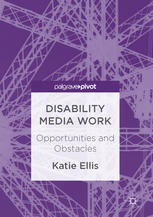

Most ebook files are in PDF format, so you can easily read them using various software such as Foxit Reader or directly on the Google Chrome browser.
Some ebook files are released by publishers in other formats such as .awz, .mobi, .epub, .fb2, etc. You may need to install specific software to read these formats on mobile/PC, such as Calibre.
Please read the tutorial at this link: https://ebookbell.com/faq
We offer FREE conversion to the popular formats you request; however, this may take some time. Therefore, right after payment, please email us, and we will try to provide the service as quickly as possible.
For some exceptional file formats or broken links (if any), please refrain from opening any disputes. Instead, email us first, and we will try to assist within a maximum of 6 hours.
EbookBell Team

0.0
0 reviewsThis book interrogates trends in training and employment of people with disabilities in the media through an analysis of people with disabilities’ self-representation in media employment. Improving disability representations in the media is vital to improving the social position of people with disability, and including people with lived experience of disability is integral to this process. While the media industry has changed significantly as a result of digital and participatory media, discriminatory attitudes around fear and pity continue to impact whether people with disability find work in the media. The book demonstrates no significant changes in attitudes towards employing disabled media workers since the 1990s when the last major research into this topic took place. By focusing on the employment of people with disability in media industries, Katie Ellis addresses a neglected area of media diversity, appealing to researchers in media and cultural studies as well as critical disability studies.